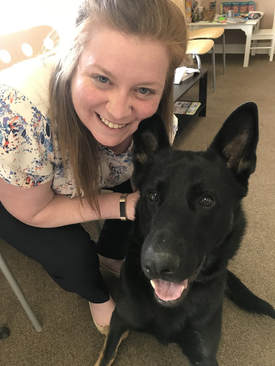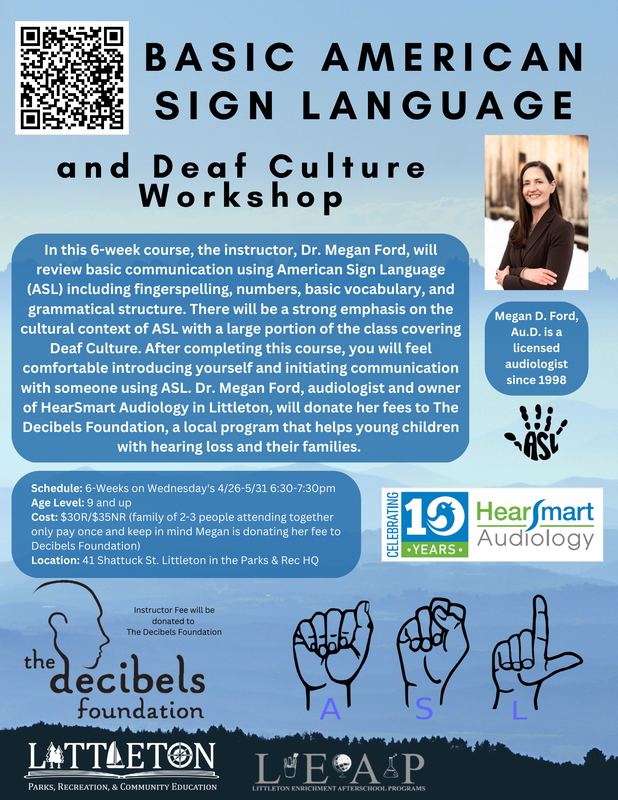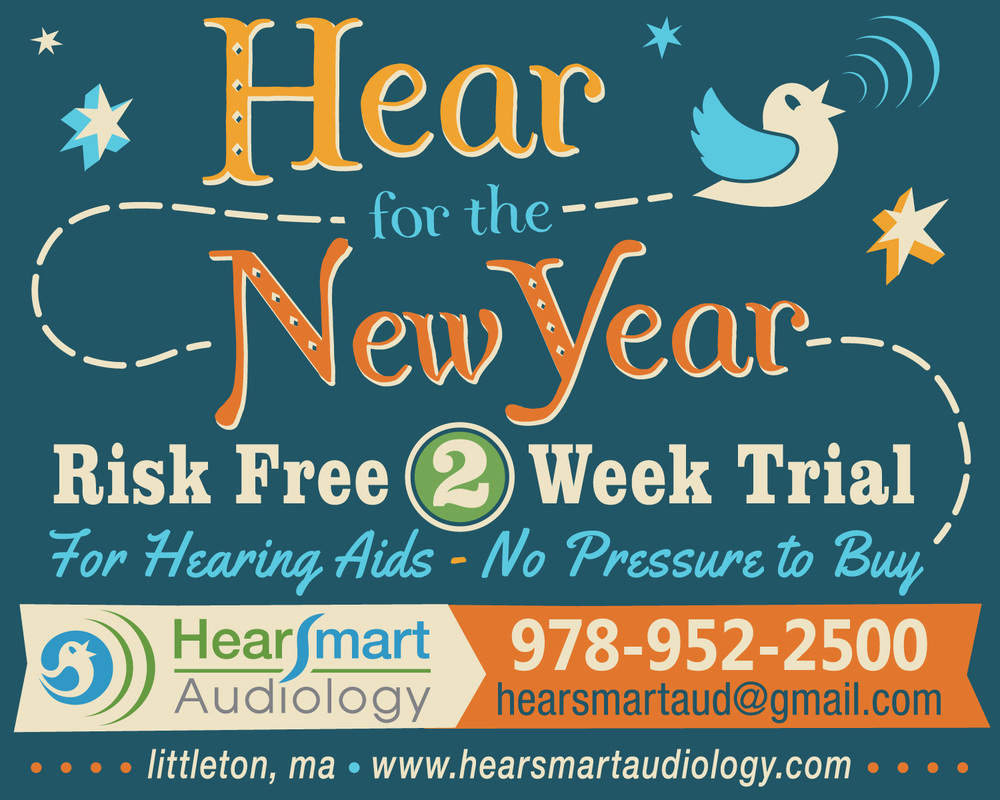
 Reminiscing this morning about 12 years ago, in May of 2012, when I took a leap of faith and invested $500 of my hard-earned dollars to register a name for a private practice that was simply a concept up in my head; kind of like a dream job where I could practice “good audiology” and feel completely satisfied knowing that I put my professional skills and experience towards changing lives for the better. Soon after that small investment, I began to furiously write my ideas down on paper, transforming that dream into something concrete that I could hold in my hands- a plan! As I sit here today, sipping my morning coffee from an old HearSmart Audiology mug, I’m kind of in awe when I realize the dream in my head was just a teeny tiny seed for something that had the power to grow into something beyond the capacity of my imagination! HearSmart Audiology is alive and well and we are growing. We will be expanding our staff and hours of operation in the near future to accommodate even more people who are looking for the highest quality hearing healthcare! Stay tuned.
0 Comments
Have you always wanted to learn, or were curious about, American Sign Language? This is your chance to learn with our very own Dr. Megan Ford who will be teaching a Basic ASL and Deaf Culture Workshop through Littleton Parks, Recreation & Community Education. If interested, register sooner than later, as space is limited.
"I think this is going to be a GREAT class and my goal is that each person who attends will gain something of value out of the experience!" - Megan Ford, AuD Dr. Ford will be donating her portion of the fees to The Decibels Foundation, a local program that helps young children with hearing loss and their families. Click here for more information on The Decibels Foundation. Click HERE to sign up! You may first need click HERE TO REGISTER with LPRCE if you aren't already.  Brains are like sponges. They absorb information (like sponges absorb liquid) but they also can provide information (like when sponges are squeezed). If you do not use a sponge for a while, they dry out and shrivel up. Use it or lose it. This is the theory behind auditory deprivation and cognitive decline. We now have some long-term research that supports this theory. The auditory cortex, located in the temporal lobe, is the part of our brain that makes sense of sound and can understand speech and interpret language. There is a pathway for sound to get there and it starts with the part of our body that we consider our “ear(s),” which is technically called the pinna. The pinna channels soundwaves into the ear canal towards the ear drum, which is connected to the 3 smallest bones in our body, the ossicles. The ossicles change soundwaves from air conduction to mechanical energy as they conduct vibrations through a lever action to a membranous window connected to the snail like structure called the cochlea. The cochlea is our inner ear and it is amazing. It has 3 channels inside that are filled with fluid. An organ (the organ of corti) separates two of those channels and is the home to the auditory nerve endings which are important cells that are tonotopically organized. This means that each cell is tuned to pick up a different frequency from 20 Hz (very low pitch sound) to 20,000 Hz (extremely high pitch sound). This is where the sound changes from mechanical energy to electrical energy and action potentials transmit signals to the nerve bundle of the 8th cranial nerve, the auditory (and vestibular) nerve, which travel through the brainstem to our auditory cortex, where finally, we make sense of the sounds around us. If any part of that auditory pathway breaks down, it will be experienced as “hearing loss.” If the hearing loss goes untreated, it is kind of like letting the sponge dry up. This is why treating hearing loss is so important. It keeps that pathway working and the brain stimulated. We don’t want to lose that! Ten years ago (as I write this, I am stunned to realize it has been an entire decade) in April of 2012, I started researching how to write a business plan. I had a vision of bringing my professional skills local to the Town of Littleton where I reside as I saw a need for quality hearing healthcare services in this area. Easy access to audiology care in the local community became a passion of mine as I interviewed colleagues who were successful private practice owners. Up until that point, for my entire professional career, I had always been an employee of large hospital systems. The effects of the downturn of the economy on healthcare at that time started to become apparent. That year, decisions were being made by administrators that I felt weren’t always in the best interest of my beloved patients. In my mind’s eye, I envisioned something better that would put the needs of people with hearing loss at the forefront so that they could have easy access to quality audiology hearing health care. Pen to paper took the dream in my head and made it concrete. Today, we have a successful, woman-owned small business in the Town of Littleton which has served nearly 3000 people to date, helping to improve lives through better hearing. HearSmart Audiology is not only a local business in the community that diagnoses and treats hearing loss with hearing aids and cochlear implant map optimization services for all ages of the population, but we also have created jobs over the past 10 years and have been a coveted residential site for doctoral level graduate students of audiology. HearSmart Audiology was a launching pad for several successful audiologists over the years as we continue to supervise future audiologists that come from programs across the country to work here in Littleton for their final year of training. HearSmart Audiology is a place where relationships are built, and patients often feel like family. Over 48 million Americans suffer hearing loss. Hearing loss is the number 1 modifiable risk factor for preventing dementia (through proper diagnosis and treatment). Untreated hearing loss causes communication breakdowns, impacts relationships, causes isolation and correlates with depression and anxiety. If you or a loved one suffers from difficulty hearing, you no longer need to struggle! Hearing isn’t meant to take a lot of effort- it should be easy, and we can help. Please give us a call: 978-952-2500 and schedule a visit to HearSmart Audiology.
 Communicating in the day of COVID-19 has not been easy. Sure, we no longer have to contend with crowded, noisy restaurants and large group settings, however, there's always that one person on Zoom that mumbles or you may find yourself straining to hear people through the now required use of face masks. There are 2 main problems that face masks present: 1. decreased high frequencies and 2. removal of critical visual cues and facial expressions that aid in communication. The first issue has been confirmed and summarized nicely in this study from the University of Illinois. Face masks muffle speech! And this can be particularly challenging for people with hearing loss. Those same people are often those who rely on visual cues and context to make up for what the ear didn't hear- which brings us to the second issue- the lack of visual cues. Even folks with normal hearing utilize facial expressions and speech reading to gain information about what is being said. We do this unconsciously. So, what can we do? First, as noted in the University of Illinois study mentioned above, hearing aids can help! If you already own hearing aids, use them. Make sure they are in good working condition and have been recently optimized for possible changing hearing levels. If you suspect hearing loss but do not already use hearing aids, make an appointment soon with a licensed audiologist. Be proactive about your hearing health as we now know from multiple studies there is a correlation with untreated hearing loss and cognitive decline; hearing loss is the #1 modifiable risk factor for preventing dementia (through the use of hearing aids). Additionally, consider asking friends, coworkers and loved ones to use a clear mask to allow for visual cues to be seen. In cases of moderate to severe and profound hearing loss, I have been told the clear masks make a world of difference when it comes to ease of communication. And finally, as always, use context whenever possible. Know the topic of conversation and ask questions if needed. Let your brain fill in gaps when your ears and eyes don't do the trick. I always say "if someone is knocking at the *blank*---, how would you fill in the blank?" We didn't have to hear the word "door" to know that is likely what was said. That is using context. For information where to obtain clear masks in the Massachusetts area, please contact me at [email protected] and I'll be happy to forward a document with information on multiple options.  Dr. Patricia Lavelle and Mr. Charlie Dr. Patricia Lavelle and Mr. Charlie It's been a while since I've posted a HearSmart Audiology blog but that's because we've been so busy caring for our wonderful patients and doing our best to serve and help people with communication difficulties. Keep your ears in good shape and be on the lookout for some exciting announcements and reasons to celebrate HearSmart Audiology in the near future. Currently, we have welcomed Ms. Sarah Hill to our team as our Audiology Resident from Northeastern University for the following 12 months. Check out more about Ms. Hill here. We have said our farewells and sent best wishes to Dr. Patricia Lavelle, who many of you grew to know and love over the past year while she completed her residency with us at HearSmart Audiology. Dr. Lavelle has launched successfully into the profession of audiology and being the "city girl" that she is, she's now working in the heart of Boston, Massachusetts. Over the past 5 and a half years, the team at HearSmart Audiology has grown as has the number of people we have been blessed to help. People come to us for hearing health care from not just Littleton, but all over the state of Massachusetts including: Acton, Westford, Chelmsford, Boxborough, Maynard, Harvard, Groton, Stow, Ayer, Concord and even farther away. We have had patients travel from Cape Cod, fly back from Atlanta, Georgia, Michigan and we've even had people visit us for hearing aid help from Reno, Nevada and Albuquerque, New Mexico! If you know anyone local, or even from far away who could use our service, please send them our way! Remember, we have free parking, a comfortable and pleasant waiting room and on certain days, you might even be lucky enough to meet our office pal, Mr. Charlie! One of the most important things to me as a practice owner is customer satisfaction and providing high quality service to our patients. There are many measures of patient satisfaction but an important one in the audiology world is called RFC (return for credit), which measures how many people have returned their hearing aids within the 45-60 day period following the fitting. According to the Hearing Industries Association, the national return rate was 19.4% in 2014. We are happy to report that HearSmart Audiology has a 2.5% RFC rate, which is way below the national average. Therefore, we can objectively say that we have 97.5% patient satisfaction in regards to our hearing aid fittings. When deciding which audiologist to work with for your hearing healthcare needs, it is important to know ahead of time about their return rate.
I can not let this day go by without saying something...and this is late in the day because by 3:15PM we were on our 16th patient at HearSmart Audiology...but today is March 2 and THREE years ago this day was the grand opening event for my private practice. It's been stressful and at times a roller coaster ride but I have absolutely NO REGRETS and it was the best decision ever. Also, in those 3 years we've registered 944 patients to date! I love you, HearSmart Audiology!
 As I look back at 2015 and look forward to 2016 I am happy to report continued growth as HearSmart Audiology enters it's 3rd year in business. Starting the audiology private practice from the ground up was a dream come true for me and a risk that I will never regret taking. Speaking of dreams, I woke with a fulfilled feeling after facilitating a wonderful support group meeting last night for the Hear My Dreams parent support group that I founded nearly 9 years ago. Just as I was feeling grateful for the opportunity to meet so many great families through this means, a Google Alert came through on my phone letting me know that I had been nominated for the Lowell Sun's Woman of the Year! My first thought was: Wow! I was surprised and graciously honored. I'd like to thank each and every one of the families and past guest speakers that have helped make Hear My Dreams what it is today- a wonderful support system for parents of children with hearing loss. Every meeting I witness amazing moments that give me such joy. Here is a link so you can cast your vote: http://www.lowellsun.com/peopleoftheyear A lot of growth occurred at HSA in 2015. I created a full time job and hired Ms. Amy Norman as HearSmart Audiology's administrative assistant. Ms. Norman has a Bachelor's degree in business administration and she is extremely organized and kind. The thing I like best about Amy is her compassion for each and every one of our patients. She's always looking out to help in whatever way she can and will assist in getting everything we need for your appointment so that we can provide the best possible service for your hearing and audiology needs. She has even made chocolate ears for patients to enjoy on our busy days. And she just registered our 900th patient! Nobody likes to be pressured. I pride myself on running a successful practice where service comes first and nobody has to leave here feeling pressured in any way. When you come to HearSmart Audiology, you will be in a comfortable and relaxing environment where you are the most important person here! HearSmart Audiology is a proud sponsor this year of the 2015 Littleton Country Gardeners' Holiday House Tour. Last year we made a small donation and I had an opportunity to tour the houses and loved each one so much. Some were old and some were new and they were all decorated in their own unique style. This will be the 2nd year the Littleton Country Gardeners are holding this event and I'm so happy it will continue as a new Littleton tradition. Supporting our community is important to me as a small business owner so this year I decided to make a larger donation this year to sponsor one of the houses. I'm really looking forward to the tour next Sunday and hopefully you can come to see the beautiful houses delightfully decorated for the season as well!
|
Categories
All
Archives
May 2024
|





 RSS Feed
RSS Feed